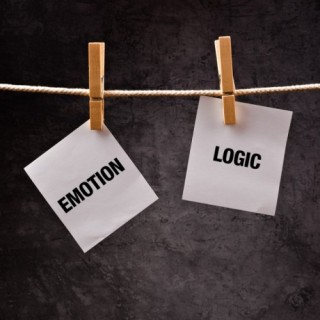For every parent who’s raising a teen, the occasional shaking of the head in confusion and frustration is understood. What could they be thinking? Why did they make that decision? Didn’t they consider the consequences they would face? But the adolescent brain is especially vulnerable to an inability to think rational thoughts because, until around age 25, it is still growing…
It can bring fear to a parent’s heart to think that at the age of 18, we release our children into the wide world with a brain that still arrives at most decisions by emotion, unable to truly consider long term consequences for actions– although those consequences are very real! At this young age our children can vote, marry, and serve in the military. And when we look back at history, we see that maturity has often been measured in strange ways. In ancient Greece, a boy was a full-grown man when he could grow a full beard! In medieval England, young children were left to tend their even younger siblings in dangerous conditions. One six-year-old girl living in the 1300’s was left to tend her ten-month-old brother when he fell into the fire and died. She later had to “answer for her felony!” In another area of England around the same time, a two-year-old was sent alone to collect apples for a meal and fell into a nearby well and was drowned.
Most parents today would never subject their children to these situations, or base their children’s maturity on outward, physical signs! And thankfully, today’s scientists and psychologists understand the adolescent brain much more clearly than in the past. Recent studies involving imaging of the adolescent brain verify the differences in development in the areas of the brain where self-image, sound judgment, and emotional maturity are located when comparing the older adult’s brain with that of the adolescent. These studies show that the young brain does not reach full maturity until the early twenties.
Knowing this fact, parents must remember that we are the most important role models for our children. As they watch how we live our lives through our decisions and responses to the people and things around us, they learn from us. As such, we must help them see the link between irresponsible, hasty decisions and their accountability for the decisions they make. Even science suggests listening without quickly offering a solution to every problem our adolescents face, helping them to develop critical thinking and problem solving skills. And while this advice is from both the clinical and scientific communities, it is also biblical: Ephesians 6:4 in the Living Bible gives a simple suggestion for listening and understanding our teens: And now a word to you parents. Don’t keep on scolding and nagging your children, making them angry and resentful. Rather, bring them up with the loving discipline the Lord Himself approves, with suggestions and godly advice.
Seeing our children through the teenage years can be a trying experience. Most parents admit that they need help and counsel at some point while raising their teenagers. The truth in Ephesians 6 is clear, and sounds very simple. The challenge comes in when emotions are high or a stressful situation presents itself. Knowing that God is near to help when we are in the struggle to understand our teens, and armed with this information on how they think, what plan can we put into place today to prepare ourselves for listening and offering that biblical advice?
 The Bottom Line, Ministries Christian News, Articles, & Poetry
The Bottom Line, Ministries Christian News, Articles, & Poetry 




